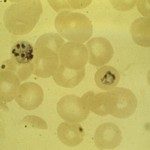Lien vers Pubmed [PMID] – 38452608
Lien DOI – 10.1016/j.ymgme.2024.108363
Mol Genet Metab 2024 Mar; 142(1): 108363
Succinic semialdehyde dehydrogenase deficiency (SSADHD) (OMIM #271980) is a rare autosomal recessive metabolic disorder caused by pathogenic variants of ALDH5A1. Deficiency of SSADH results in accumulation of γ-aminobutyric acid (GABA) and other GABA-related metabolites. The clinical phenotype of SSADHD includes a broad spectrum of non-pathognomonic symptoms such as cognitive disabilities, communication and language deficits, movement disorders, epilepsy, sleep disturbances, attention problems, anxiety, and obsessive-compulsive traits. Current treatment options for SSADHD remain supportive, but there are ongoing attempts to develop targeted genetic therapies. This study aimed to create consensus guidelines for the diagnosis and management of SSADHD. Thirty relevant statements were initially addressed by a systematic literature review, resulting in different evidence levels of strength according to the Grading of Recommendations Assessment, Development, and Evaluation (GRADE) criteria. The highest level of evidence (level A), based on randomized controlled trials, was unavailable for any of the statements. Based on cohort studies, Level B evidence was available for 12 (40%) of the statements. Thereupon, through a process following the Delphi Method and directed by the Appraisal of Guidelines for Research and Evaluation (AGREE II) criteria, expert opinion was sought, and members of an SSADHD Consensus Group evaluated all the statements. The group consisted of neurologists, epileptologists, neuropsychologists, neurophysiologists, metabolic disease specialists, clinical and biochemical geneticists, and laboratory scientists affiliated with 19 institutions from 11 countries who have clinical experience with SSADHD patients and have studied the disorder. Representatives from parent groups were also included in the Consensus Group. An analysis of the survey’s results yielded 25 (83%) strong and 5 (17%) weak agreement strengths. These first-of-their-kind consensus guidelines intend to consolidate and unify the optimal care that can be provided to individuals with SSADHD.

